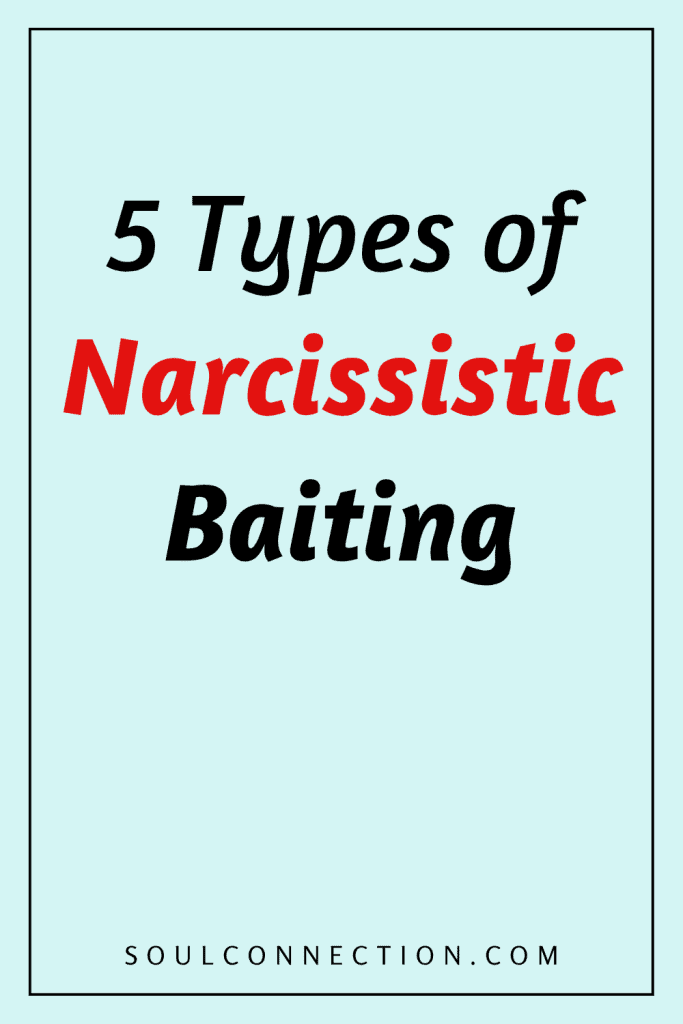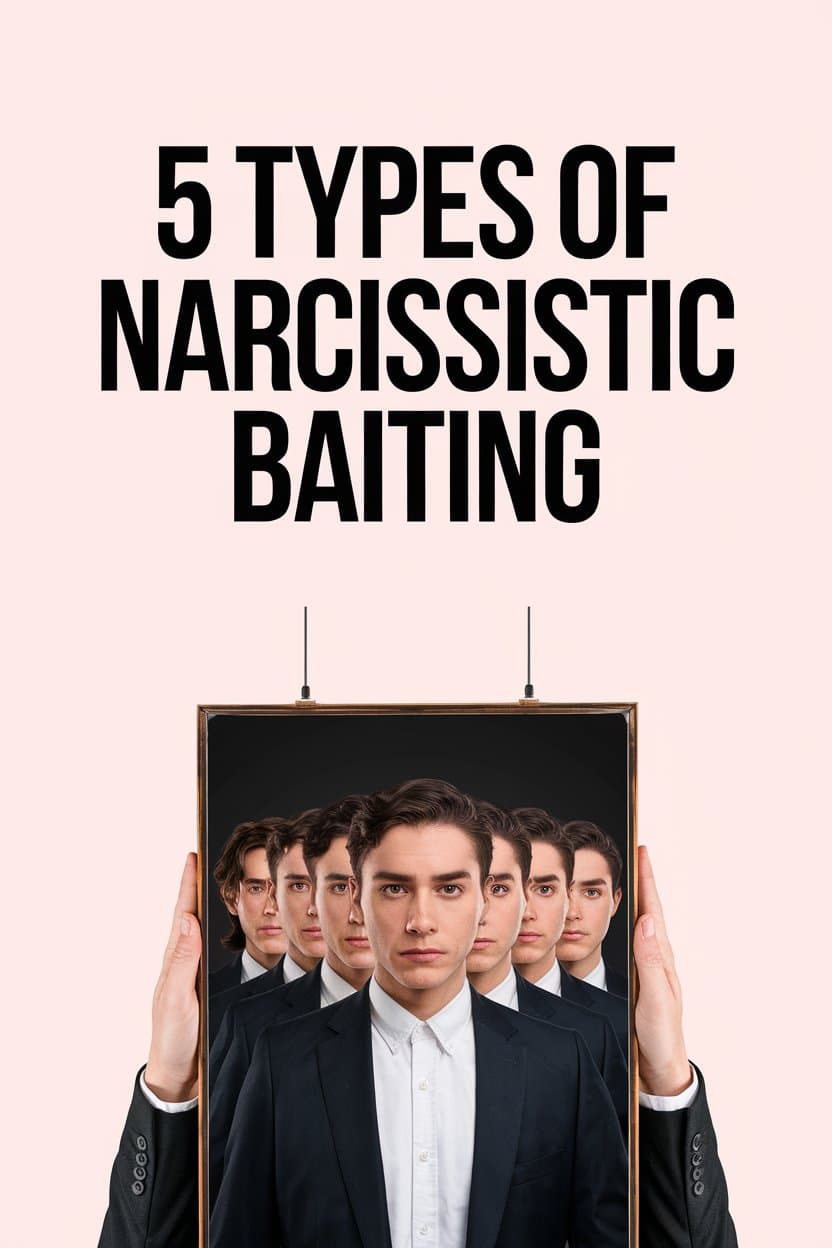Some people fish for compliments. Narcissists? They fish for chaos, attention, or your last shred of sanity.
Welcome to the wild, wild world of narcissistic baiting—the psychological equivalent of tossing chum in the water just to see what bites.
If you’ve suddenly found yourself on edge, confused, or apologizing for things you’re not sure happened, you might’ve been caught in one of their traps.
Let’s unpack the top five tricks narcissists love to play, and—because you deserve peace—how to sidestep the mess without needing a degree in advanced emotional gymnastics.
1. Emotional Grenade Lobbing
A narcissist’s favorite party trick: hurling a random insult, criticism, or accusation right when you least expect it.
Picture this: You’re minding your business, possibly enjoying a cup of tea or scrolling through memes, when they suddenly ask, “Why are you always so sensitive?” or “Everyone thinks you’re dramatic, you know.”
This isn’t idle banter. It’s a calculated move to provoke you into defending yourself, over-explaining, or—better yet for them—having a meltdown worthy of a daytime soap.
If you take the bait, the narcissist gets to enjoy the spectacle of your emotional reaction. Bonus points if they can convince you the whole argument is your fault.
Dodging the shrapnel: Resist the urge to defend yourself or argue logic. Respond with a neutral, “Hmm, interesting,” or simply don’t engage at all.
The less you react, the less fun it is for them—and the quicker their show fizzles.
2. The Silent Treatment Trap
Nothing says “I care” quite like someone suddenly pretending you don’t exist. Narcissists wield silence as a weapon, not a mature conflict resolution tool.
One minute, you’re talking about dinner plans; the next, you’re met with a cold shoulder so icy, it could chill your coffee.
This bait is designed to trigger anxiety and self-doubt. Maybe you replay every moment in your head, searching for your “crime.” Maybe you go out of your way to win them back, apologizing profusely for… something?
Their silence becomes a power play, one that leaves you scrambling for connection and validation.
Breaking the spell: Don’t grovel. Don’t chase. Acknowledge their silence with dignity: “Let me know when you’re ready to talk.” Then carry on living your fabulous life. Refusing to play their game is the quickest way to end it.
3. Gaslighting Gauntlet
Where there’s narcissistic bait, there’s usually a side of gaslighting. This trick involves twisting facts, denying things they said or did, or insisting your memory is faulty—all to have you doubting your own mind.
They might say, “I never said that, you’re imagining things,” right after you both know they absolutely did say that. Or they’ll accuse you of being too sensitive, too controlling, or too forgetful. If you’re not careful, you’ll start to believe it.
This tactic isn’t about getting you to agree, but about keeping you off-balance and easier to manipulate. The more uncertain you feel, the more dependent you become on their version of reality.
Holding onto your sanity: Keep a written record if you need to—texts, emails, whatever. Trust your gut.
When your reality is constantly being rewritten, it’s grounding to have something that says, “No, I’m not losing it.” And don’t be afraid to say, “I remember it differently,” and leave it at that.
4. Triangulation Tactics
Why argue one-on-one when you can drag an unsuspecting third party into the mess? Triangulation is the narcissist’s way of bringing in friends, family, or even colleagues to validate their side or make you feel isolated.
You’ll hear things like, “Even Sarah thinks you overreacted,” or “My mum agrees you’re too emotional.” Suddenly, it’s not just the narcissist against you—there’s a (possibly imaginary) Greek chorus cheering them on.
This is meant to make you question your perspective and, ideally, scramble for approval from the narcissist and the peanut gallery.
Calling their bluff: Don’t engage in a three-way wrestling match. Calmly reply with, “I’d prefer we talk about this just us,” or, “I’m not interested in what others think about our relationship.”
If the ‘others’ do exist, have your own conversations with them. Funny how stories change when you cut out the middleman.
5. Victim Card Vortex
Just when you’re close to holding them accountable, the narcissist spins around and suddenly becomes the most misunderstood, injured party you’ve ever seen.
Tears, tragic life stories, or dramatic declarations of “Nobody ever understands me!” fly fast and thick.
This is the bait for your empathy. If you’re someone with a big heart (and a pulse), you’ll want to console, comfort, and fix.
Before you know it, the original issue is forgotten, and you’re reassuring them while your own needs are left in the dust.
Keeping your empathy in check: Compassion is beautiful, but boundaries are essential. You can acknowledge their feelings without abandoning your own: “I’m sorry you’re upset, but we still need to talk about what happened.”
Don’t let the spotlight shift; keep your hand on the remote.
Escaping the Narcissist’s Bait Shop
Narcissistic baiting thrives on reaction. Every time you defend, justify, or lose your cool, you’re handing them exactly what they want: power, attention, and a starring role in a drama nobody auditioned for.
Standing your ground doesn’t require icy detachment or Jedi-level emotional control. It’s about knowing the traps, refusing to be lured in, and—if necessary—removing yourself from the circus altogether.
Your peace of mind is not up for auction. If someone insists on tossing emotional chum your way, maybe it’s time to let them fish alone.
Coffee’s hot, your boundaries are set, and you’re one step closer to a narcissist-free night’s sleep. Now that’s bait worth biting.


